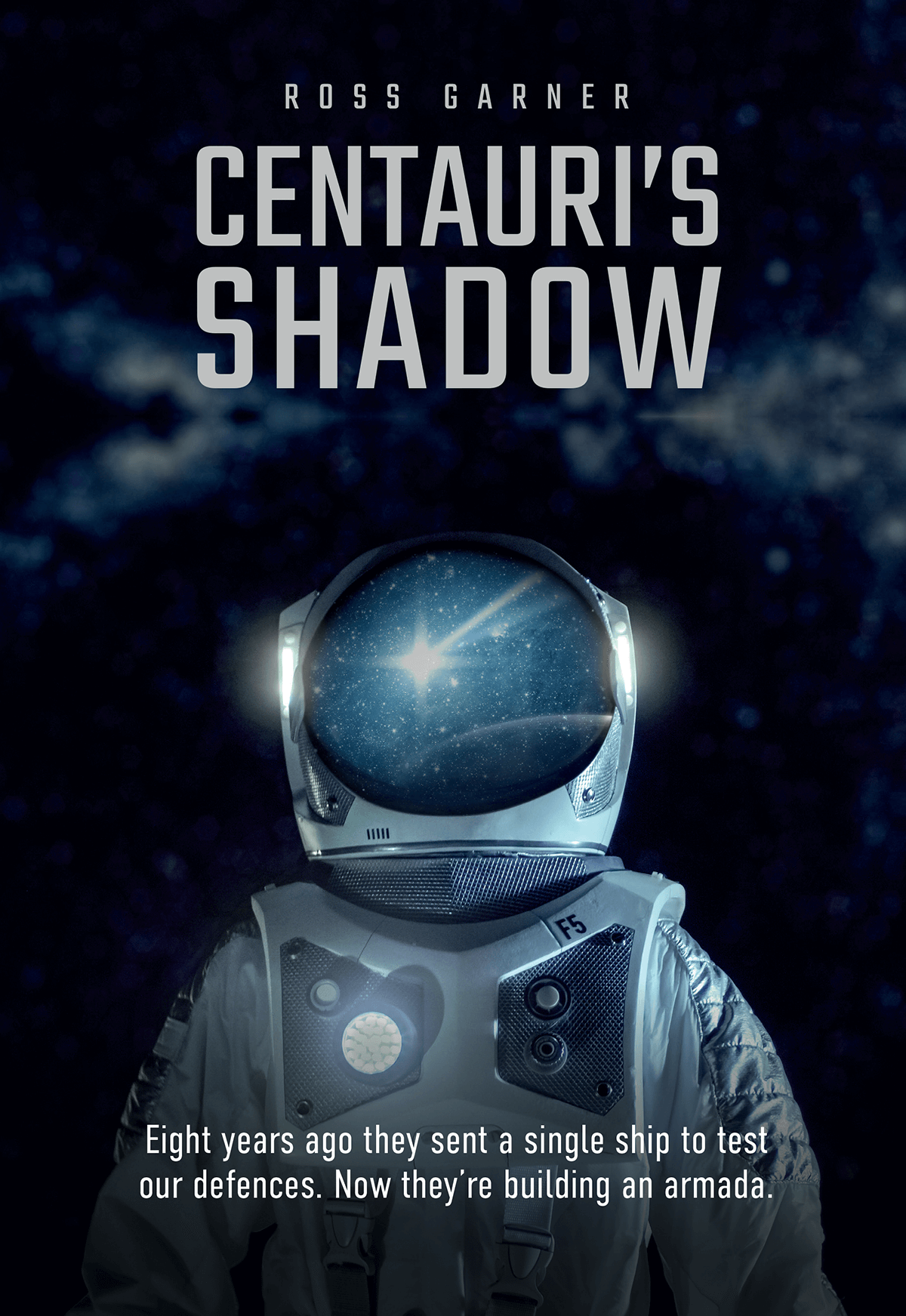I was very excited when my colleague Ross Garner published his debut novel Centauri’s Shadow. It’s not every day that someone at work shows up with a thrilling space adventure, so I jumped at the chance to review it.
Centauri’s Shadow is a hard science fiction space opera with two separate storylines, told in two separate timelines that eventually converge.
Here’s what the blurb says:
“‘Eight years ago they sent a single ship to test our defences. Now they’re building an armada.’
Cole grew up in the shadow of grief. Kyoko grew up in the shadow of war. Two pilots, separated by time, set out on parallel journeys to Proxima Centauri. What they find could be the start of something new. What they bring with them could be the end of all we know.
In this sweeping science fiction debut from Ross Garner, readers will find an Earth that is transformed by fear of an imminent invasion; a space station in orbit that acts as a gateway to other worlds; a Martian colony with all of the threat and violence of the Old West; and a distant star where answers can be found.
What is ‘the signal’? A greeting, or a threat?”
Centauri’s Shadow lives up to its promises. There’s war, crime, threat, space accidents, space stations, aliens, and a dramatic twist.
The first chapter sets an exciting pace. Young Cole, one of the two protagonists, is in a spaceship with his family, waiting for his mother to pilot a spaceship around the sun. Then it all goes wrong, leaving Cole (literally and figuratively) scarred for life.
The story alternates between following Cole “before the attack” and a military pilot, Kyoko, “eight years after the attack.” A signal from an alien species has shaped Cole and Kyoko’s lives, in opposite directions. Originally believed to be a message, it resulted in an attack on earth from an alien species, which has shaped Kyoko’s career and leaves the future of all earthly life in doubt.
Readers watch as Cole grows up post-accident, through a troubled childhood, another space voyage, and a stay on a ragtag Mars colony full of crime and vice. Kyoko is a more straightforward character who has made, and is capable of making, hard choices. I enjoyed the story’s emotion and some of the characters’ moral greyness.
The space opera proceeds at a compelling, readable pace and has a surprising twist that makes it well worth reading. The ending satisfies, too. I wouldn’t call this an optimistic narrative, but it closes with a welcome sense of hope.
Give Centauri’s Shadow a try if you fancy a smoothly paced, exciting new science fiction read.
